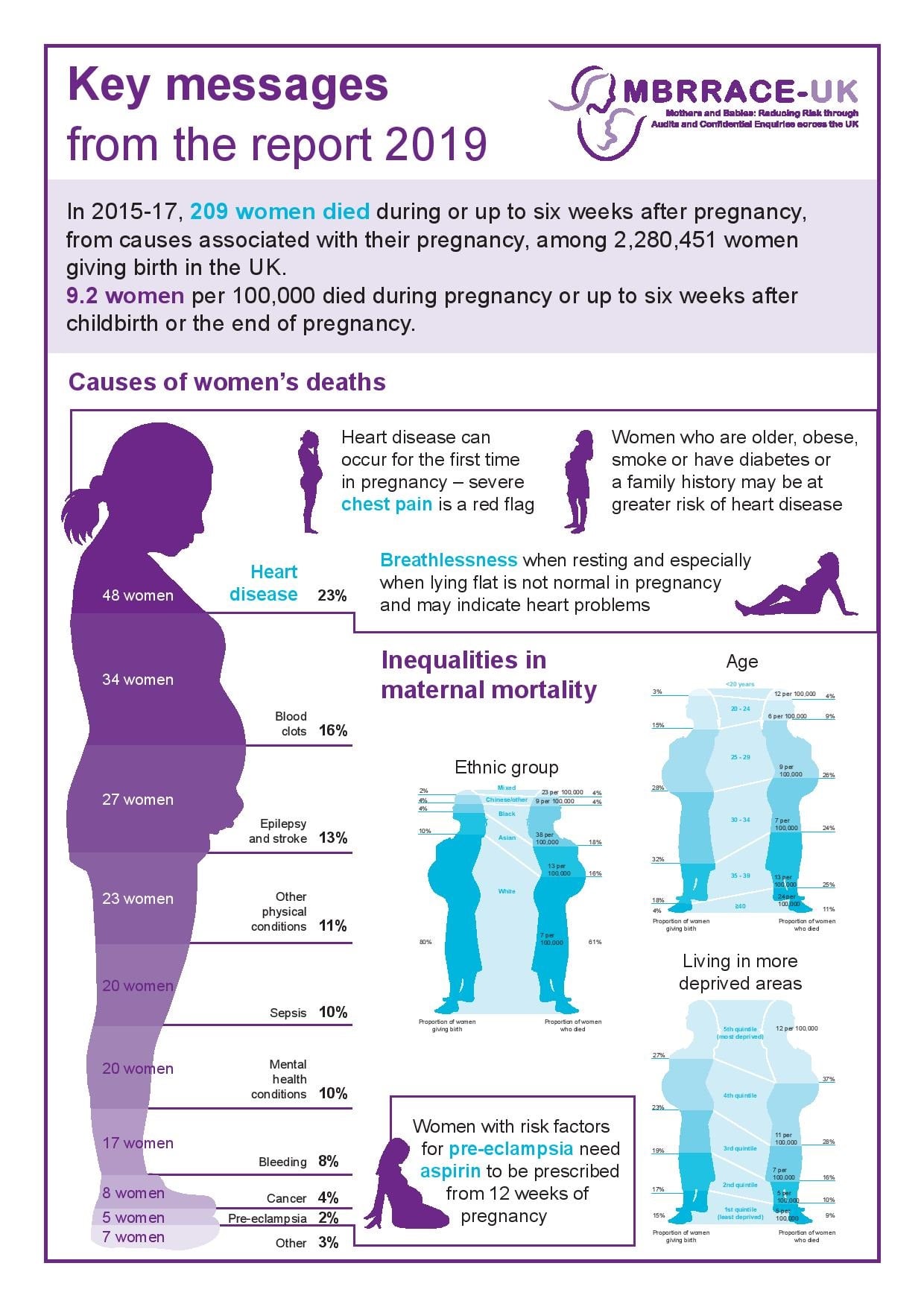Driving policy change to prevent maternal deaths
The MBRRACE programme is influencing policy and services to support pregnant women and prevent maternal deaths.
Professor Marian Knight and the MBRRACE-UK programme team were Highly Commended in the policy engagement category in the Vice Chancellor’s Innovation Awards 2020
Most maternal deaths in the UK are due to medical and mental health problems rather than the complications of pregnancy. Black women are five times more likely to die than white mothers in pregnancy and childbirth.
The MBRRACE-UK programme (Mothers and Babies: Reducing Risk through Audits and Confidential Enquiries in the UK), based at Oxford University’s Nuffield Department of Population Health, examines the circumstances around every maternal death in the UK to identify such patterns – and powerfully communicates its research findings to policy makers.
‘We might imagine that maternal deaths are due to obstetric complications such as haemorrhage or pre-eclampsia,’ explains lead investigator Professor Marian Knight. ‘Our research shows that the most significant killer is heart disease, and that blood clots, stroke and mental health problems are also important. We also know that older women, and those from disadvantaged or minority ethnic backgrounds, are more likely to die. Ensuring that health providers have this information means they can put services in place to support women and prevent deaths.’
‘A key element of our MBRRACE-UK research is confidentiality,’ Knight continues. ‘Every record we examine is anonymised – the names of women and health professionals are removed – and it’s not our role to apportion blame to individuals but to recognise where things need to change. This means that we can look at all factors contributing to a woman’s death and get open and honest engagement from those involved.’
MBRRACE-UK has developed out of a maternal health research programme hosted by various institutions over the last 60 years and has been based at Oxford since 2012. A key development is that all records are now online which allows experts from different health specialisms to examine the care women have received at the same time. ‘It’s faster, more efficient and better protects confidentiality than posting paper records around the country,’ comments Knight.
Another innovation is the emphasis on clear communication of findings. Knight has worked with designers and communications experts to develop simple, powerful infographic research summaries which are shared through social media and public and policy engagement events. ‘It’s no good having an excellent report sitting on the shelf,’ she comments. ‘The infographics help us get information to busy people in a clear and compelling way.’
A 2018 infographic highlighting ethnic inequalities in maternal mortality sparked widespread focus on addressing inequalities, including the FiveXMore campaign, and new measures set out in the NHS Long Term Plan (Jan 2019).

Policy engagement around research findings has led to other positive developments in the UK. New ‘maternal medicine networks’ (announced in November 2017) will ensure expert care for pregnant women with additional medical conditions such as heart disease. New perinatal mental health funding will ensure that all pregnant women and new mothers are able to access specialist mental health services if they need to.
MBRRACE-UK research has also influenced global health policy. Professor Knight has worked with the World Health Organisation and others on the health care of pregnant refugee and migrant women and new-born children, as well as the management of sepsis and maternal mental health.
‘There’s no point doing research unless it changes something,’ adds Knight. ‘We’re very proud that our policy and public engagement has helped change the conversation about maternal health inequalities and stigmatised conditions such as mental health. It would be a tragedy not to learn from women’s deaths during or after pregnancy, and I’m privileged to lead the MBRRACE-UK programme to do this.’
Marian Knight is Professor of Maternal and Child Population Health at the National Perinatal Epidemiology Unit, Nuffield Department of Population Health, and Lead Investigator of the MBRRACE-UK maternal programme
Funders: Healthcare Quality Improvement Partnership (on behalf of NHS England), Scottish Government Department of Health and Social Care, Welsh Government Department of Health and Social Services